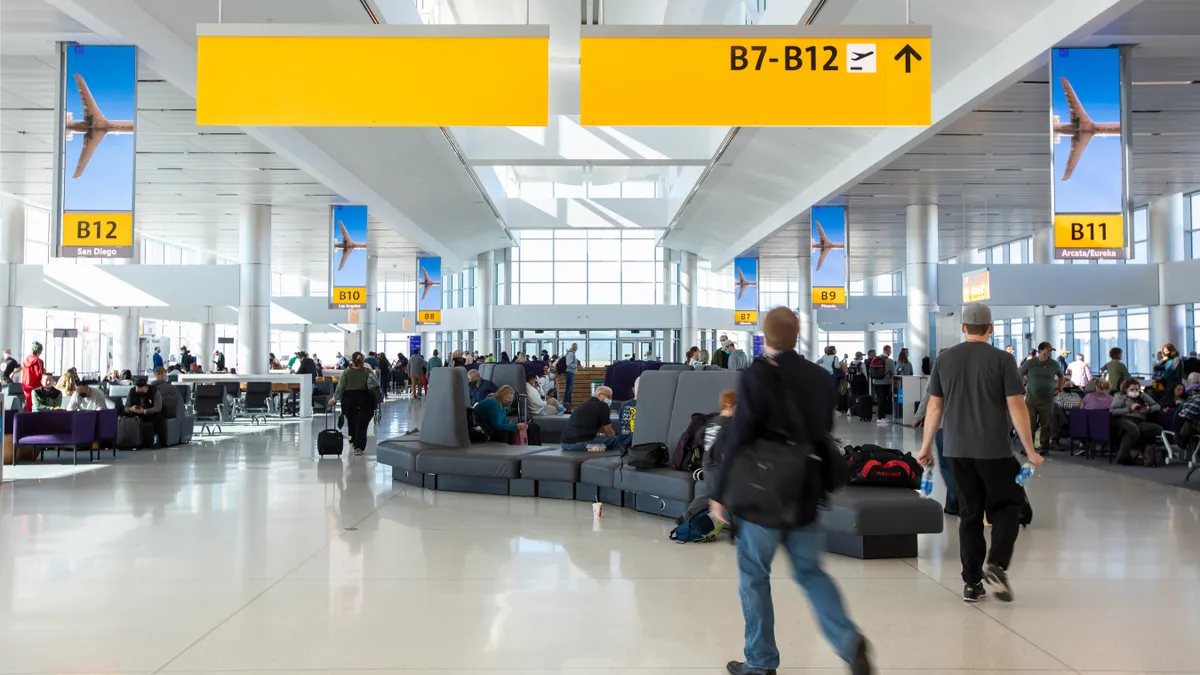Dive Brief:
- Years after the public disputes that led to the termination of the original contracts on Denver International Airport’s Great Hall Project, the airport has released a report detailing what it says went wrong with the project.
- The outside report produced for the airport, obtained by the Denver Post, details a retrospective on issues stemming from the original public-private partnership and related struggles from building the expansion in the operational terminal, financing and more.
- One legislator involved with the project said that the report was “gently written,” according to the Denver Post. Denver City Councilman Paul Kashman called the 2017 vote he cast authorizing the expansion the worst vote he’d ever made on the city council.
Dive Insight:
In January, the project won approval from the city council to enter the third and final phase of the project, with new project manager Hensel Phelps overseeing its progress. The final phase of the project, which focuses on improved security checkpoints, updated ticketing areas and more, will cost $1.3 billion, with the total project cost surpassing $2 billion. The revised 2028 completion date falls seven years after its initially scheduled end phase.
Spanish firm Ferrovial led Great Hall Partners, the initial builder on the project, and the chief partner on the public-private partnership. However, following disputes that included accusations of micromanaging and escalating costs, the airport fired the group, leading to millions of dollars in litigious claims and demands.
The report notes that the project may have been better served as a design-bid-build contract or a construction manager/general contractor project, the latter of which is the current system Hensel Phelps is operating under.
Hensel Phelps, according to the report, is completing work ahead of schedule and under budget.
The report also noted that the cost overruns, which included millions of dollars in change orders, contributed to the problems. Some of the cost overruns, the report claims, were the result of Great Hall Builders, the original contractors on the job, which included Ferrovial construction subsidiary Ferrovial Agroman West, and Englewood, Colorado-based Saunders Construction. Great Hall Builders, per the report, shipped in materials and equipment that weren’t usable on the project or didn’t have parts available in the U.S. for replacement.














